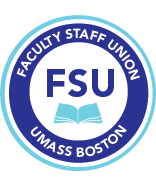The Point: Potemkin Universities
10/19/2023
This week’s Point was written by Jeff Melnick, of the American Studies Department
Greetings, Colleagues:
It’s been a minute since I’ve had the privilege of talking to you, so I want to start by saying that I hope you have managed to stay healthy in body and mind, especially during this dark past week.
I spent quite a bit of time over the summer and early fall—as I’m sure many of you did—reading with concern about the dramatically shifting landscape of public higher education. Just in case you haven’t had the opportunity to stay up to date, I want to call your attention to one particular case—that of West Virginia University (WVU). The short version is that as a result of financial mismanagement, upper administrators on that campus are in the process of creating what three colleagues there (Rose Casey Jessie Wilkerson, and Johanna Winant) call a Potemkin University, “a false front, a gutted shell.” “Our university risks being so hollowed out,” they write, “that students will not have the ability to do what is most enriching about college and what defined so many of own experiences: explore disciplines or take a class for the sake of curiosity, not solely as a means to a vocational end.”
The destruction of WVU by President Gordon Gee and his wildly irresponsible administration team---the plan, as Lisa Corrigan writes in The Nation—is to eliminate “9 percent of its majors (32 programs total), all of its foreign language programs, and 16 percent of its full-time faculty members” as well as a huge number of staff members as well—should concern all of us at UMB for two main reasons. First off, there is the straightforward moral reality that as workers in the public higher education sector we must find ways to express our solidarity with our colleagues under attack on other campuses. And, in a more self-interested way, we need to take note that what is happening at WVU is certainly (to use some figurative language that hits especially hard when thinking about West Virginia) is a canary in a coal mine that we would be irresponsible to ignore.
The situation at WVU is dire indeed. As Dennis Hogan has recently explained in a smartly argued and brilliantly titled piece (“Capture the Flagship”), the basic scenario is that “in order to rectify the financial distress his administration has caused, Gee now seeks nickel-and-dime savings that will make it cheaper by making it worse, firing instructors, packing more students into classrooms, and proposing instruction delivered via apps.” The bottom line, as Hogan and Corrigan so lucidly demonstrate is that the mythologies being circulated by the administration at WVU are just that—while the campus has faced daunting issues around enrollment, the real story is about how university leadership has squandered money on “massive capital projects” and administrative bloat.
And here is something that we at UMB should especially take note of: it probably goes without saying, but Gee and his band of University Killers are not thinking this stuff up on their own—they are very much being directed by the incredibly expensive work of RPK, a consulting group that is part of what many have started to refer to as the “consultocracy”: this chilling article in Truthout should ring some very loud alarm bells for all of us working at UMB with its reminder that university administrations around the country have been hiring highly-paid law firms to develop strategies for “campus union busting and academic reorganization.” Remember: it was just over a year ago that we got handed this assessment of our Africana Studies Department prepared by a management-side Boston law firm paid hundreds of thousands of dollars that came out of the public coffers. I want to urge you also to keep your eyes on how activity-based-budgeting (now mortifyingly renamed the “"Beacon Budget” model to align it with the broader marketing efforts warping our campus life) embodies a good bit of what has devastated WVU: the short-sighted “every tub on its own bottom” approach is in complete contravention of how public higher education institutions have historically been funded and managed.
Let me end on a more uplifting note. The brutal attack on public education has not been silently accepted. Professors Casey, Wilkerson and Winant remind us that a public university is not owned by the provost, or the president, or the Board of Governors: “A public university is owned by the people of that state.” I have been inspired by the amazing demonstrations of collective resistance by students, staff, faculty, and concerned community members in and beyond West Virginia and reminded that it is incumbent on all of us to speak up. And I think that the outpouring of beautiful writing from current and former students (see especially these words from WVU alum Crystal Lake) is the most convincing demonstration you could ask for as to why fully-functioning institutions of public higher education are so crucial.
